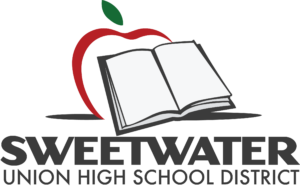Youth In Transition
Youth In Transition
Who are children and youth in transition (experiencing homelessness)?
Children and youth in transition (experiencing homelessness) lack a fixed, regular and adequate nighttime residence and include:
- Children and youth living in shared housing (doubled up) due to loss of housing, economic hardship, or similar reason; motels, hotels, trailer parks, or campgrounds due to the lack of alternative adequate accommodations; emergency or transitional shelters; or abandoned in hospitals;
- Children and youth who have a primary nighttime residence that is a public or private place not designed for, or ordinarily used as, a regular sleeping accommodation for human beings;
- Children and youth who are living in cars, parks, public spaces, abandoned buildings, substandard housing, bus or train stations, or similar settings; and
- Migratory children who are living in one of the situations described above.
- Unaccompanied youth who are living in one of the situations described above and are not in the physical custody of a parent or guardian; unaccompanied youth include children and youth denied housing by their families and runaways.
What rights do children and youth in transition have related to their education?
The McKinney-Vento Act is federal legislation designed in part to ensure educational rights and promote educational stability for children and youth experiencing homelessness. Under the McKinney-Vento Act, eligible children and youth have the right to:
- Go to school
- Attend either the local school or the school of origin, if this is in their best interest. The school of origin is the school the child attended when permanently housed or the school in which the child was last enrolled. Students can continue attending their school of origin the entire time they are homeless and until the end of any academic year in which they move into permanent housing if it is the choice of the student and the parent or guardian, and to the extent feasible.
- Enroll in school immediately, even if missing records and documents normally required for enrollment such as a birth certificate, proof of residence, previous school records, or immunization and other medical records.
- Enroll, attend classes, and participate fully in all school activities while the school arranges for the transfer of records.
What programs are in place to support youth in transition?
Sweetwater Union High School District’s Foster & Homeless Youth Education Services Program provides students experiencing homelessness with assistance related to:
- School placement, enrollment, and transfer
- School meals
- School transportation
- School uniforms
- School supplies
- Educational services
- Mental health services
- Referrals to community organizations/agencies for additional services
- Case consultation and management
- Dispute resolution process
Dr. Elvia Estrella
Program Manager
Email: Elvia.estrella@sweetwaterschools.org
Phone: (619) 407-4969
Fax: (619) 407-4982
